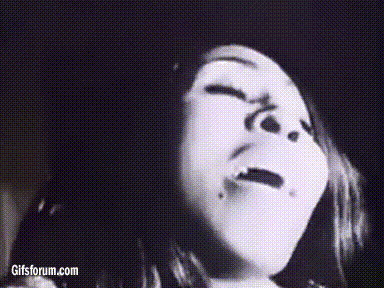"La Chanson De Vieux Amants" (The Song of Old Lovers)
by Jacques Brel
Of course, we have had our storms
Lovers for 20 years, it is a crazy love
A thousand times you have packed your bags
A thousand times, I have taken flight
And each piece of furniture remembers
in this room without a cradle
the claps of old thunderstorms
Nothing is the same anymore
You have even lost the taste for water
And me only the taste for conquest
But my love
My sweet, my tender, my marvelous love
from the clear dawn until the end of the day
I love you still, you know I love you
Me, I know all your sorceries
You know all my magic tricks
you have kept me safe from trap to trap
I have lost you from time to time
Of course, you have taken a few lovers
You surely have to pass the time
The body must know rapture
Finally finally
It took us a lot of talent
To become old without becoming adults
Oh my love
My sweet, my tender, my marvelous love
from the clear dawn until the end of the day
I love you still, you know I love you
And the more time marches on
The more time torments us
but isn't it the worst trap
for lovers to live in peace?
Of course you cry a little less easily
I tear myself apart a little more slowly
We protect our secrets less and less
We take fewer chances
we don't trust the stream of water
but it is always a tender war
Oh my love
My sweet, my tender, my marvelous love
from the clear dawn until the end of the day
I love you still, you know I love you
Something about this song broke me open today, left me not just weeping but sobbing, in the way that tears can open the soul, creating a kind of wonderment. Floods of pain, raw and reeling, though I can't determine whether it's the sheer pulsing beauty of the cello arrangement, the melancholy sweetness of Collins' voice, or just how I feel today, full of contradiction.
It's not true, you know, that you "get old", though the body wears down, the mind may work a little slower, and it's easy to feel that you are falling hopelessly behind and don't particularly want to catch up. I heard it said, many times, when I was younger, "oh, but you stay young inside," and I regarded those words with the special contempt I reserved for "old people". Now I find I am on a collision course with time, that the wall seems to hurtle towards me and that there is little I can do to make it stop. I certainly can't run away.
But the old woman, the "vieux amant" who spoke to me, she was right. We don't get old. Emotions only deepen, despair becomes unbearable, funny things make you feel happy and dizzy, moments of awe are heartstopping. And sex, desire, that whole province, no, it most surely does not go away. It changes. The hideous stereotype of a randy old lady putting on her army boots and chasing after repulsed young men is a lie, an insulting, life-hating lie. Because it isn't like that at all.
When I first heard this recording, I think I cried, maybe even sobbed as I did tonight, and I was only fifteen years old. God knows what I was going through then, but the terrifying thing is, much of it I am STILL going through, things I know I will never resolve. I thought the song was tender, wistful and very beautiful. I knew enough French to string together meaning: "Finalement", "tourment", "tendre", "toujours", "je t'aime" - and the rest was made evident just by phrasing, that this was an "old" couple (and in my fifteen-year-old mind, they certainly must have been old) who had been together TWENTY YEARS. I don't know how old Brel was when he wrote this - didn't he die young? - but his perceptions of age were probably similar to mine.
I've been with my vieux amant for FORTY years and counting now, twice what it says in that song, and I swear to God I do not feel "old" (though HE is an old coot, of course). Maybe it's just that sixty is the new "whatever", the new 59 or something. When I Googled the song title to look for images, what I saw just horrified me: there were all these embarrassingly whimsical pictures of toothless people in their 90s, coyly kissing or wobbling down the street together. "Old lovers". If they had been together 20 years, they must have met in the nursing home at age 75.
Time is weird, life is strange, a mixed bag for me who has a dark personality, something you really can't change, and a feeling of always being on the outside, partly by choice, but also by dislocation and a kind of chronic square-peg syndrome. I hate it, and it goes by so fast. I have thrown myself at my goals, and largely fallen short. I am bullheaded enough not to stop, don't even know how to stop, to give up. I want to. I want to let it go, forget about making any sort of mark, because if I've come this far and haven't, I won't.
So I tell myself. The war goes on. I want this! I want someone to read my story, be grabbed and moved by it. I see it slowly sinking into the quagmire it seems to have arisen from. I have no idea what to do. Fretting, emotional, I find music triggers floods of weeping, which a part of me secretly enjoys. I realize I have had bits and pieces of success, just enough to keep me writing but never enough to feel satisfied or worthy. So the battle never ends: toujours, c'est la guerre.
BLOGGER'S NOTE. OK, so I've had a few more thoughts about all this. Writers necessarily tear themselves apart in the service of their work, so I must analyze.
I think one of the reasons the song affected me so wrenchingly is that I hadn't heard it in 35 years. That's a lot of heartache, a lot of gain and loss, richness as well as periods of abject wretchedness. And golden gifts, sometimes unrecognized. Isn't that kind of like the song of the "vieux amants"? When I looked at it more closely, I realized that this was hardly a song of tragedy. It was all about a couple who are devoted to each other even after some fierce storms, including infidelity and deception (thus, all the references to trickery, sorcery, not the kind of "magic" we associate with romance).
In other words, this ain't such a bad deal. This is a couple, still passionate about each other, never indifferent, together because they still want to be. There are poignant references, almost disguised (the "room without a cradle", which implies a childlessness they may nor may not have chosen), and the casual affairs which help pass the time, but such biting sarcasm almost borders on the humorous.
I'm reminded of a Catholic priest I used to know who was ticked off because people constantly referred to the sufferings of Jesus. "He had a bad week at the end," he liked to say, "but aside from that, he had a pretty good time!". I feel this way about the old lovers (who, if they're really old, must have met when they were well into their 50s). There is a richness here that is in contrast to the tragic, sobbing tune, which seems to be talking about death rather than devotion.
I can't really listen to Brel sing his own stuff. I just made an attempt to watch him sing this on YouTube, and the problem isn't his voice. The arrangement is pure elevator music, sudsy, with those high cheesy strings I haven't heard since I threw out my old Ferrante and Teicher albums .I don't know why a legend like Brel would allow such fromage, and I will admit Collins' version is far superior, but OH is it mournful, funereal almost, whereas Brel's is just oversentimental, and a little sad.
Another thing that popped into my head: the more I listen to this tune, the more I realize it's actually a tango. Just change the tempo, the rhythm, and you can see the "vieux amants" in black silk and spangles, performing the oddly jerky eroticism of old Argentina on the dance floor.
It's all too strange for words.
Order The Glass Character from:
Thistledown Press
Amazon.com
Chapters/Indigo.ca











































.jpg)
